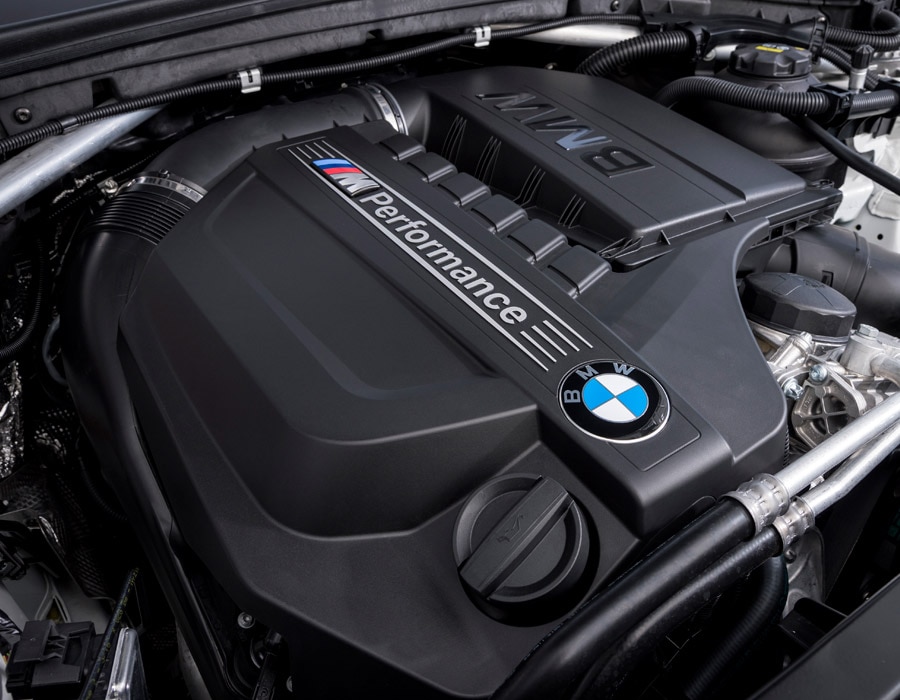Top 5 BMW Engine Technologies Revolutionizing the Automotive Sector
Top 5 BMW Engine Technologies Revolutionizing the Automotive Sector
Blog Article
Unveiling the Intricacies of Next-Generation Power Units: a Deep Dive Into Advanced Engine Innovations and layouts
As we stand on the precipice of a new period in transport, the intricacies of next-generation engine designs beckon us to check out the sophisticated innovations and technologies that assure to redefine the driving experience. Digging deeper right into the worlds of exhaust control, intelligent engine monitoring systems, and the horizon of power unit advancement, we locate ourselves on the cusp of a makeover that assures to improve the landscape of wheelchair as we know it.
Advancement of Engine Materials

The change in the direction of advanced engine materials has actually additionally enabled designers to develop engines with higher power outcomes while maintaining fuel efficiency criteria. As an example, making use of light-weight materials lowers the total weight of the engine, leading to boosted fuel economic situation and reduced exhausts. Furthermore, developments in products modern technology have actually enabled much better thermal administration within engines, causing increased reliability and longevity.
Turbocharging and Supercharging Technologies
Just How do Turbocharging and Supercharging Technologies transform engine efficiency and efficiency in modern-day cars? Turbo charging and turbocharging are technologies that dramatically improve engine efficiency by enhancing the quantity of air consumption right into the burning chamber. Turbocharging achieves this by making use of a generator driven by exhaust gases to pressurize the consumption air, while supercharging uses a belt- or chain-driven compressor to accomplish the exact same result.
These innovations enable smaller, extra fuel-efficient engines to produce power equivalent to bigger ones, called downsizing. By compeling more air into the cyndrical tubes, supercharging and turbocharging boost burning efficiency, causing boosted horsepower and torque output without a significant boost in engine dimension. This brings about far better acceleration, lugging ability, and overall driving efficiency.
In addition, turbocharging and turbo charging contribute to enhanced gas efficiency by enabling the use of smaller engines that consume much less gas under regular driving problems - bmw engine. This mix of boosted efficiency and performance has made turbocharging and supercharging essential components of many contemporary engine layouts
Emission Control and Environmental Effect
With enhancing international issues regarding air quality and environmental sustainability, the execution of discharge control technologies in vehicles plays an essential duty in minimizing harmful contaminants launched into the atmosphere. Modern automobiles are geared up with innovative discharge control systems that aid decrease the environmental effect of vehicle operations. Catalytic converters, as an example, are made to transform poisonous gases such as carbon monoxide, nitrogen oxides, and hydrocarbons right into much less unsafe materials like carbon dioxide and water vapor.
In addition, innovations in engine modern technology, such as the integration of exhaust gas recirculation systems and careful catalytic reduction, have actually significantly contributed to reducing emissions. These modern technologies function in tandem to optimize combustion efficiency and reduce the launch of damaging contaminants right into the air. In addition, the growth of crossbreed and electric automobiles represents an important step towards reducing the total ecological original site impact of the transport market.
Intelligent Engine Administration Solution

Additionally, these systems allow cars to fulfill stringent emissions requirements without compromising efficiency, providing a more eco-friendly driving experience. The integration of expert system and artificial intelligence abilities in engine management systems remains to press the borders of what is feasible, bring about additional renovations in efficiency, reliability, and general lorry efficiency. bmw engine. As auto technology advances, smart engine monitoring systems will certainly play a crucial duty in visit this website forming the future of transport towards a much more sustainable and effective instructions
Future Trends in Power System Growth
As smart engine monitoring systems lead the way for improved control and optimization in contemporary lorries, future patterns in power system growth are positioned to redefine the landscape of auto propulsion innovations. These alternate power sources provide enhanced efficiency and efficiency while aligning with stringent ecological regulations.
One more significant fad is the combination of advanced materials and manufacturing methods. Light-weight products such as carbon fiber and aluminum are being utilized to lower total automobile weight, improving gas efficiency and efficiency. Additionally, advancements in 3D printing and additive manufacturing are allowing the production of intricate engine components with higher precision and longevity.
Moreover, synthetic intelligence and artificial intelligence are playing a critical function in optimizing power device performance. These technologies permit real-time tracking and flexible control, bring about extra reliable and reliable power distribution. In general, future fads in power unit growth are tailored in the direction of performance, performance, and sustainability, driving the vehicle sector towards a new age of propulsion modern technologies.

Conclusion
In conclusion, the improvements in engine materials, turbocharging, emission control, and smart management systems have actually paved the method for next-generation power devices. The complex layouts and advancements in contemporary engines showcase the ongoing advancement of automotive modern technology.
Exploring the modern advancements in engine products has actually been crucial in boosting the performance and effectiveness of contemporary engines. Over the years, the evolution of engine products has played a crucial duty in pressing the limits of what engines can achieve.The shift towards advanced engine products has actually likewise have a peek here allowed designers to develop engines with higher power outcomes while keeping fuel efficiency criteria.The implementation of intelligent engine management systems in modern vehicles has actually reinvented the method engines are controlled and maximized for performance and efficiency. By gathering information in real-time and analyzing it with sophisticated formulas, smart engine monitoring systems can adjust to driving styles, environmental variables, and engine health to make the most of power result while minimizing gas consumption and exhausts.
Report this page